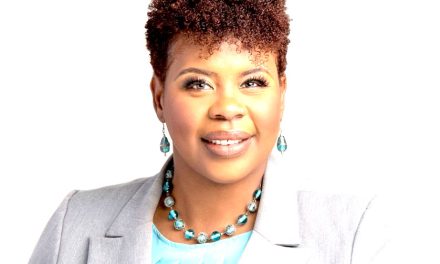By Megan Sayles
AFRO Business Writer
msayles@afro.com
Despite Black people comprising nearly 14 percent of the U.S. population, they own just about 3 percent of the country’s businesses. In comparison, White entrepreneurs own 85 percent of companies– even though their share of the population is about 60 percent.
Nevertheless, according to a Pew Research Center analysis, Black businesses are on the rise– and they’re making more money. The center reported that there were 161,031 Black-owned businesses in the U.S. as of 2021, up from 124,004 in 2017. During this time period, Black business owners revenue grew from nearly $127.9 billion to $183.3 billion, a 43 percent increase.
Anne-Marie Knight, executive director for the Black Business Alliance (BBA), said this progress is limited.
“The state of Black business is fluctuating. There’s been growth in Black business over the years, and in particular, growth in Black woman-owned businesses,” said Knight. “But, we are still not succeeding in certain areas.”
Knight has led the BBA since 2020, bringing years of experience in consulting and entrepreneurship. The Connecticut-based organization works to empower, promote, and grow small and medium Black small businesses by providing education, funding and capacity-building.
“We don’t have enough small Black businesses that have employees and are successful to be able to make that big of a difference for our economic wealth,” said Knight. “Our businesses are primarily in the service space. We’re salon owners or in retail or restaurants, we’re not in some of these high-yield business areas, which are better for building wealth.”
After the 2020 murder of George Floyd and subsequent racial reckoning, a number of U.S. companies made racial equity promises that included commitments to closing the racial wealth gap. A main component of these pledges was expanding capital access for Black and Brown businesses.
Knight thinks these actions have helped, but funding remains sparse.
“Though the spotlight has been shone on capital issues, and we’re starting to address them, we still have a long way to go,” said Knight. “We’re still at the 1 percent mark for venture capital funds.”
As far as who can step in to reduce these divides, Knight urged the Black community to look inward. According to the McKinsey Institute for Black Economic Mobility, African-American buying power is expected to hit $1.7 trillion by 2030.
Knight thinks Black people should prioritize spending with businesses from their community. Black businesses should view each other as allies rather than competitors.
“These systems haven’t worked for us for hundreds of years. They’re not designed to work for us. Part of what we can do is take control of our actions,” said Knight. “We can agree to network amongst ourselves, support each other, build our businesses by doing business with each other first and spend our money with Black-owned businesses first.”
As entrepreneurship is considered a common path for wealth creation, Knight said it can help to close the racial wealth divide. She also thinks running a business has become more than a means of supporting a family for Black people. It’s a way to create lasting impact in their communities.
“Having stable and growing Black-owned businesses is a solution for our community,” said Knight. “If we’re going to close that gap, we have to increase not just the number of Black-owned businesses but their capacity to grow six- to seven-figure businesses in their communities.”
Megan Sayles is a Report for America corps member.
The post Black businesses are growing in the U.S., but challenges remain appeared first on AFRO American Newspapers.











